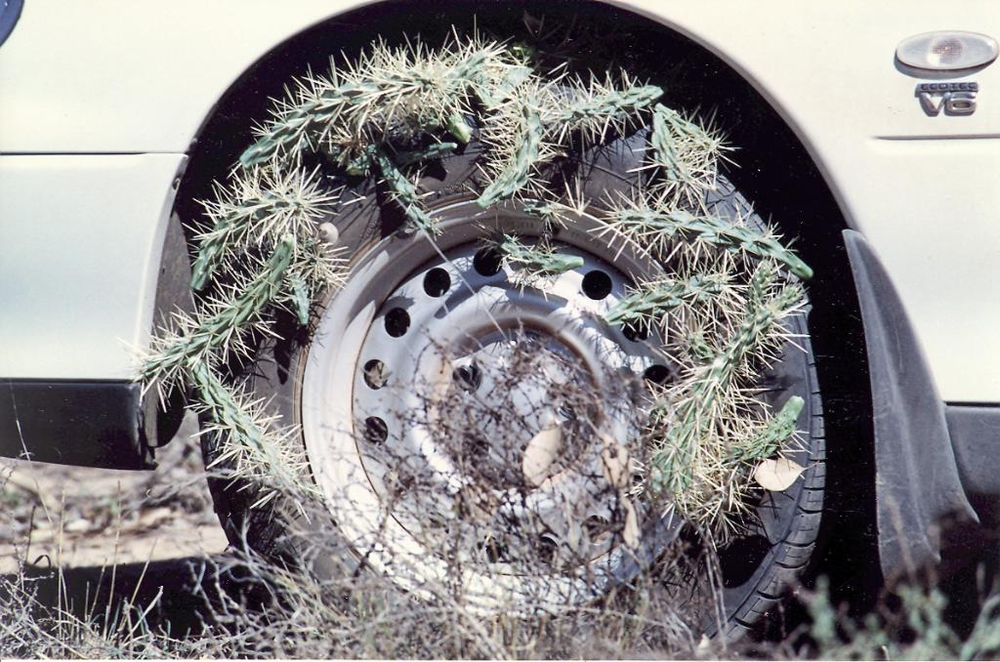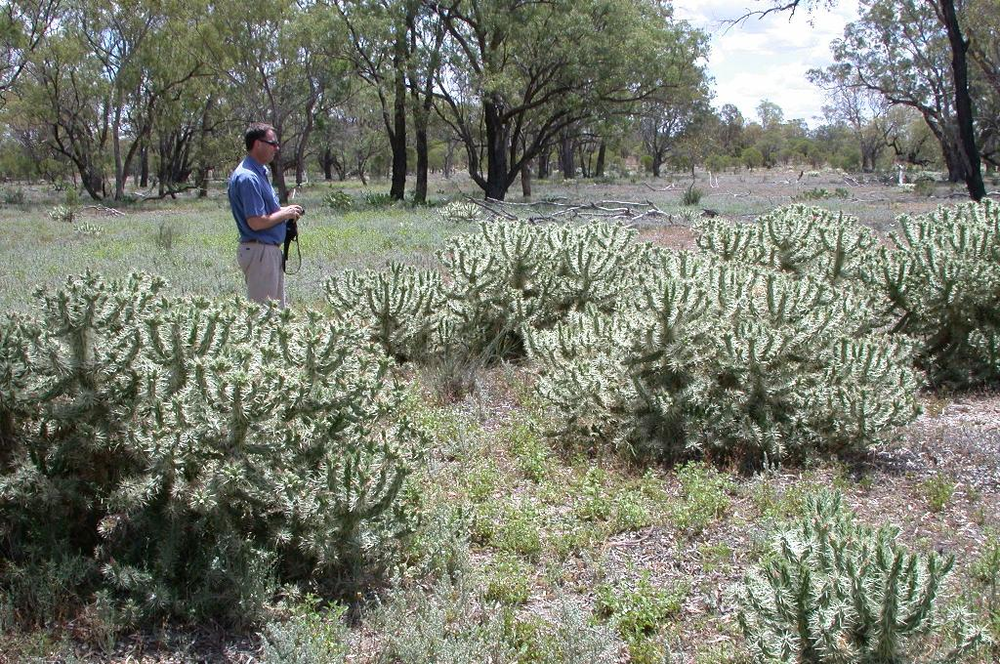Landholders desperate for Hudson Pear spray help
Luke Williams
15 February 2023, 6:40 AM
 Too hard to handle: part of the infestation at the Lightning Ridge Opal Reserve. IMAGE: Lightning Ridge Area Opal Reserve facebook
Too hard to handle: part of the infestation at the Lightning Ridge Opal Reserve. IMAGE: Lightning Ridge Area Opal Reserve facebookBob Kelly had some grand plans for sheep farming when he bought 6000 hectares of land north west of Walgett a few years ago, but now he says “the whole property is on the verge of completely stuffed”.
Mr Kelly’s holdings are now almost entirely covered in Hudson Pear. He says there are vast areas of his property so filled with the wide, six and seven foot high cactus plants that you can't even walk through it. Almost none of it can be used for grazing.
He acknowledges that the cochineal bug will take a few more years to work, but says so far it hasn't made any difference to the weed.
Mr Kelly also says any suggestions by Castlereagh Macquarie County Council (CMCC) that he is being supplied with the chemicals needed to kill the plant for free are incorrect.
“A few years ago we were given some free chemicals, but it didn’t go far,” he told the Western Plains App. “After that it was all left to us to pay”.
Kelly told the Western Plains App he simply cannot afford the quantity of chemicals needed to stop the spread of his plant at his property.
“You can spend $1200 per drum which will give you 6000 litres and I can tell you know that will hardly put a dint in it. We just can't afford to get the property properly sprayed”.
Cumborah (45 kilometres north-west of Walgett) farmer John 'Slacky' Slack-Smith told the Western Plains App Hudson Pear has also been expanding across his property and he does not believe he can stop it without help from government authorities.
He says the CMCC supplied him with around “four gallons” of the chemicals and dye needed to kill the plant about 12 months ago but this was not enough to stop the plant from spreading.
“Some of these plants seem to be getting twice as a large in a matter of months, then you get little bits fall off and another one grows and then another one, and then that’s it, game over,” he told the Western Plains App.
“I own 5,000 acres and I spend about half my working day fighting Hudson Pear”.

Image: NSW Government
Mr Slack-Smith told the Western Plains App the price of the chemicals was “prohibitive”.
“CMCC come out here and tell me I have to spray it, but they don't give me any help or resources to do so," he said.
"I find it insulting that men who sit in air-conditioned offices can come here and tell me I have to do something about a problem I don't have the resources to deal with, no single farmer or landowner has the resources to deal with because the costs of spraying or removing it are just too high,” Mr Slacky said.
Bob Kelly told the Western Plains App there needs to be funded full-time workers who dedicate all their time to spraying the plant not just on council land like CMCC does, but to killing the plant on private property too.

Image: NSW Government
Last week, we reported that officials had told this publication that landowners are supplied with the chemicals needed to Hudson Pear by Local Land Services (LLS).
However, emails obtained by the Western Plains App confirm that they have no free chemicals currently available to landowners and the chemical doesn't appear to have been available for at least a number of months.
The response to a landowner request for chemicals by a senior staff member at CMCC dated 22 August 2022 says "That programme that LLS and CMCC were distributing for LLS...This programme ended some time ago, all chemical had been allocated and as far as I know will not be running again. Sorry I cannot assist with this".
Meanwhile, John Slacky says he thinks the army should be sent in to help stop the spread of the plant and to do so as a part of 15-20 year plan to completely eradicate it
“If someone doesn't do something about it, this plant is going to spread all over NSW”.
Cochineal Bug "Not Always Working"
The Western Plains App has been told that the spread of the Cochineal Bug had been restricted by the wetter and more humid weather of the past two years as the bug prefers hotter, drier weather to breed.
However, Lightning Ridge Opal Reserve Manager Dave Sullivan said that he had inspected the breeding facility set up by the CMCC and that there was simply not enough breeding tubs being used to indicate sufficient breeding was occurring.
"It's not just that" he said "the problem is how the bug spreads.
"If you have one manifestation of Hudson Pear 50 metres away from the next, the bug cant travel that far, so it can only ever be completely effective. That's why landowners need to spray and why need to be given spray because the bug alone is not the answer".
Sullivan also alleged he has visited sites such as the shown above where there had been attempts to release the bug, only to find that the bug had died, that no Hudson Pear had in turn being destroyed and that Hudson Pear had actually expanded in some places where the bug had been released.




